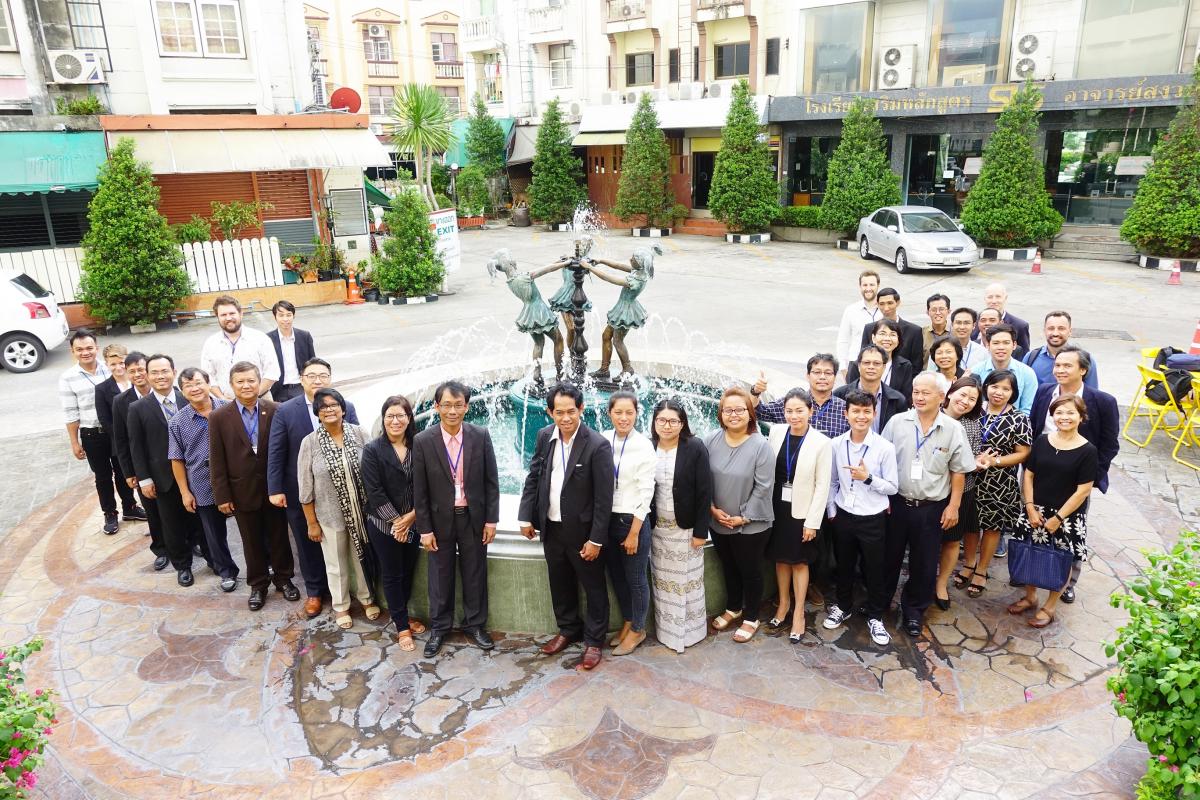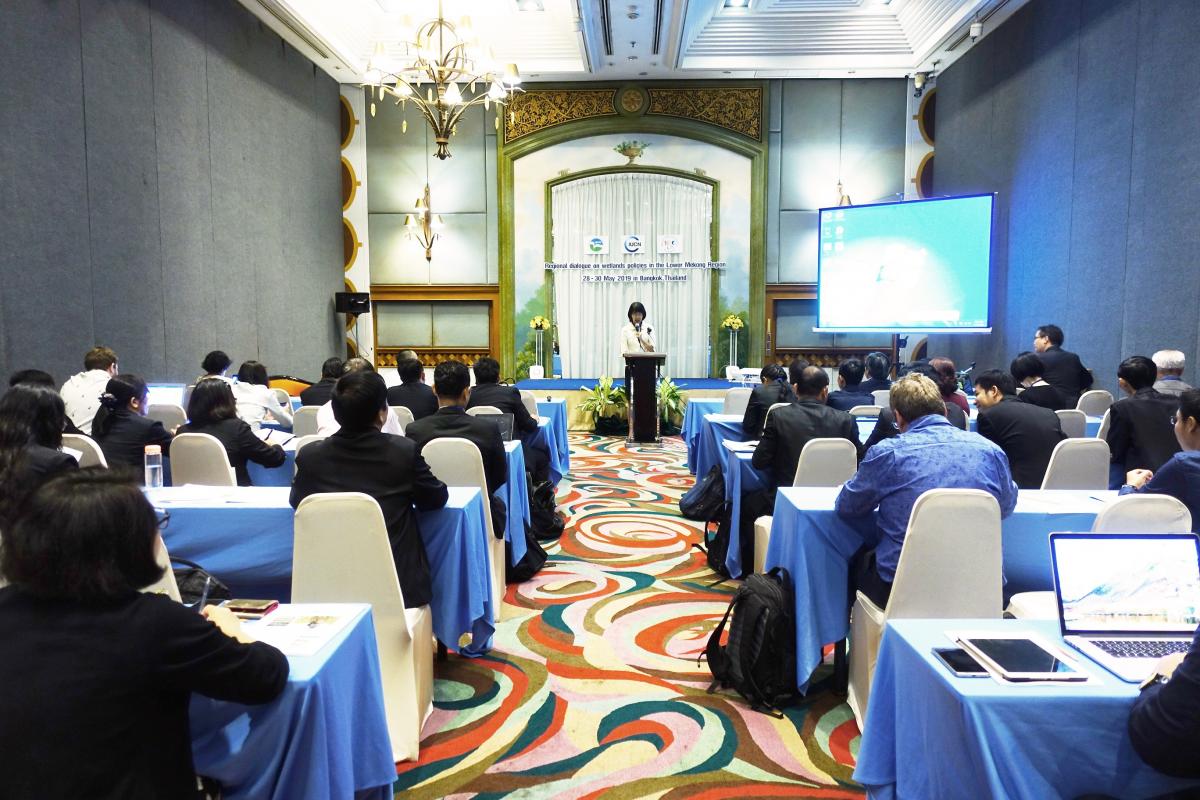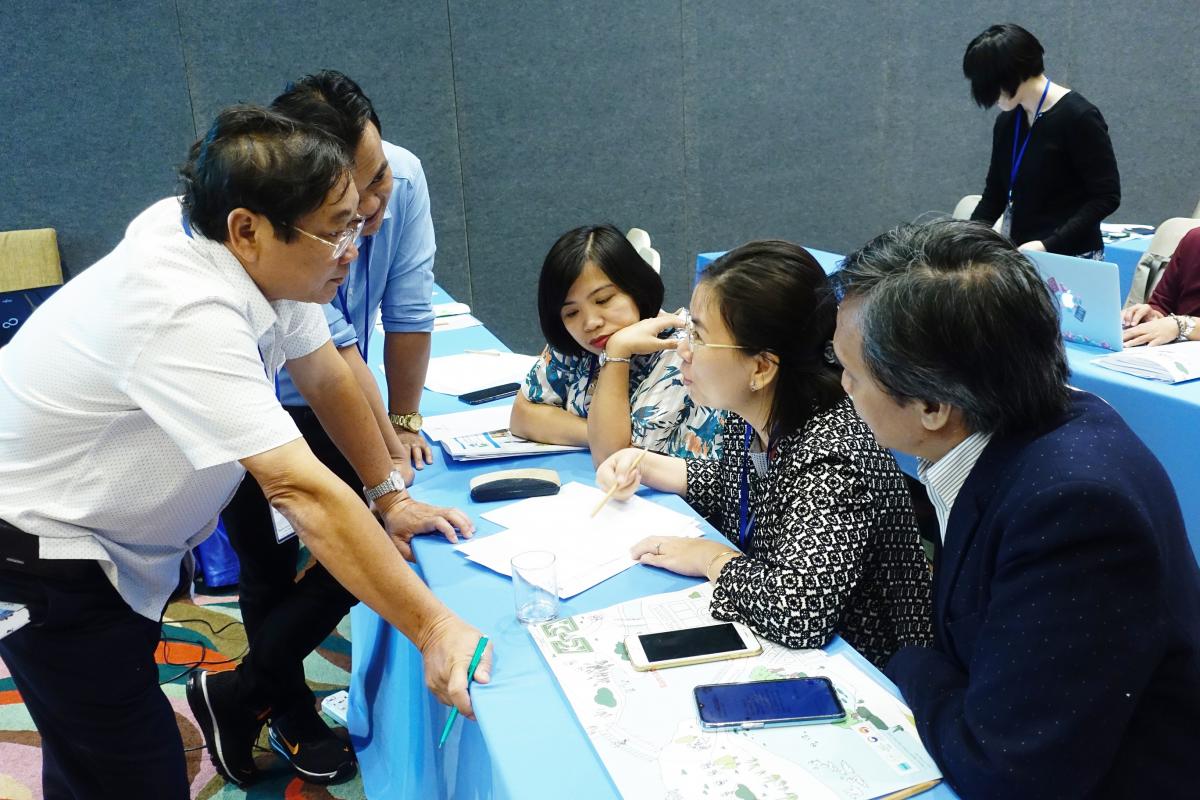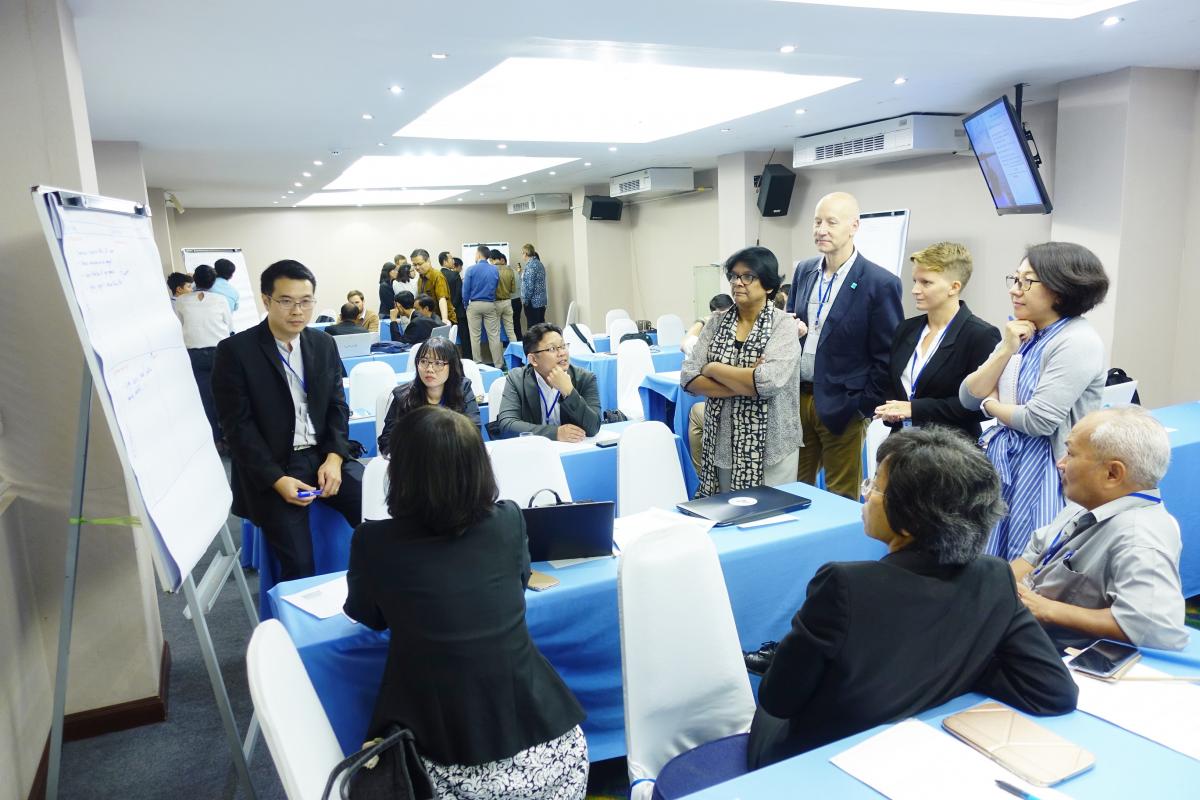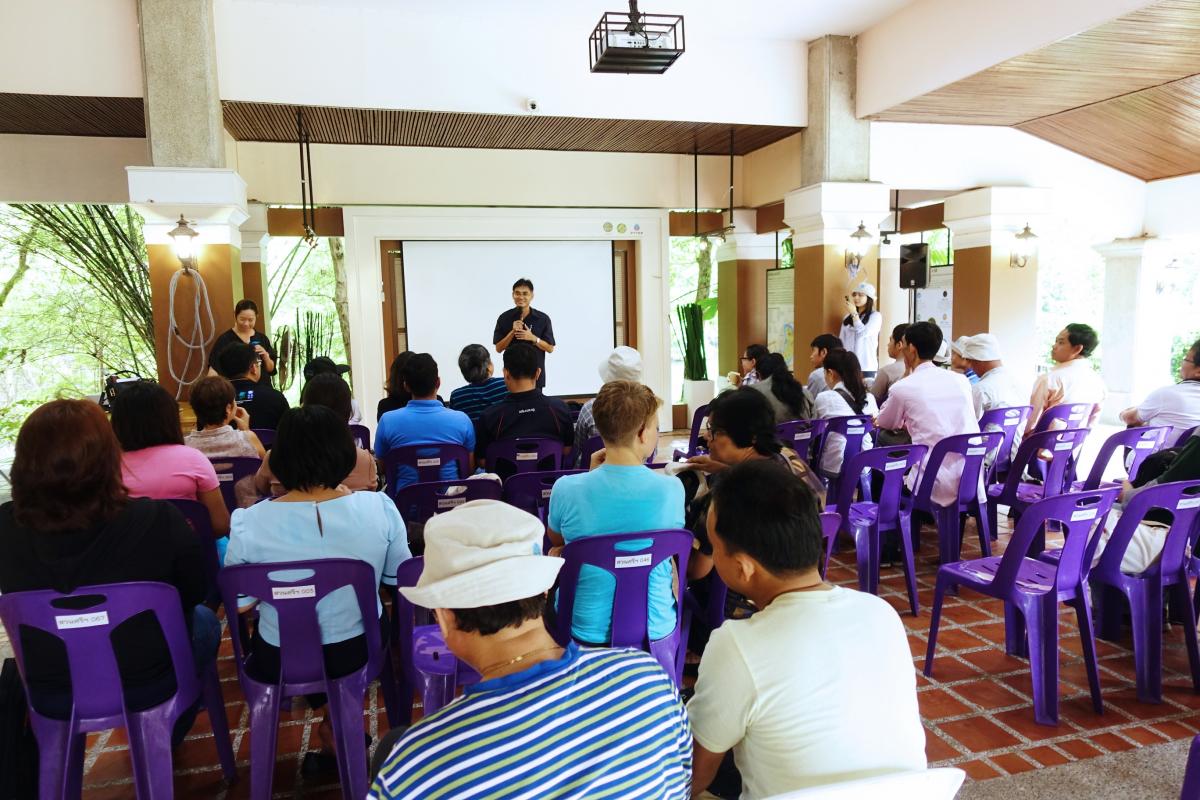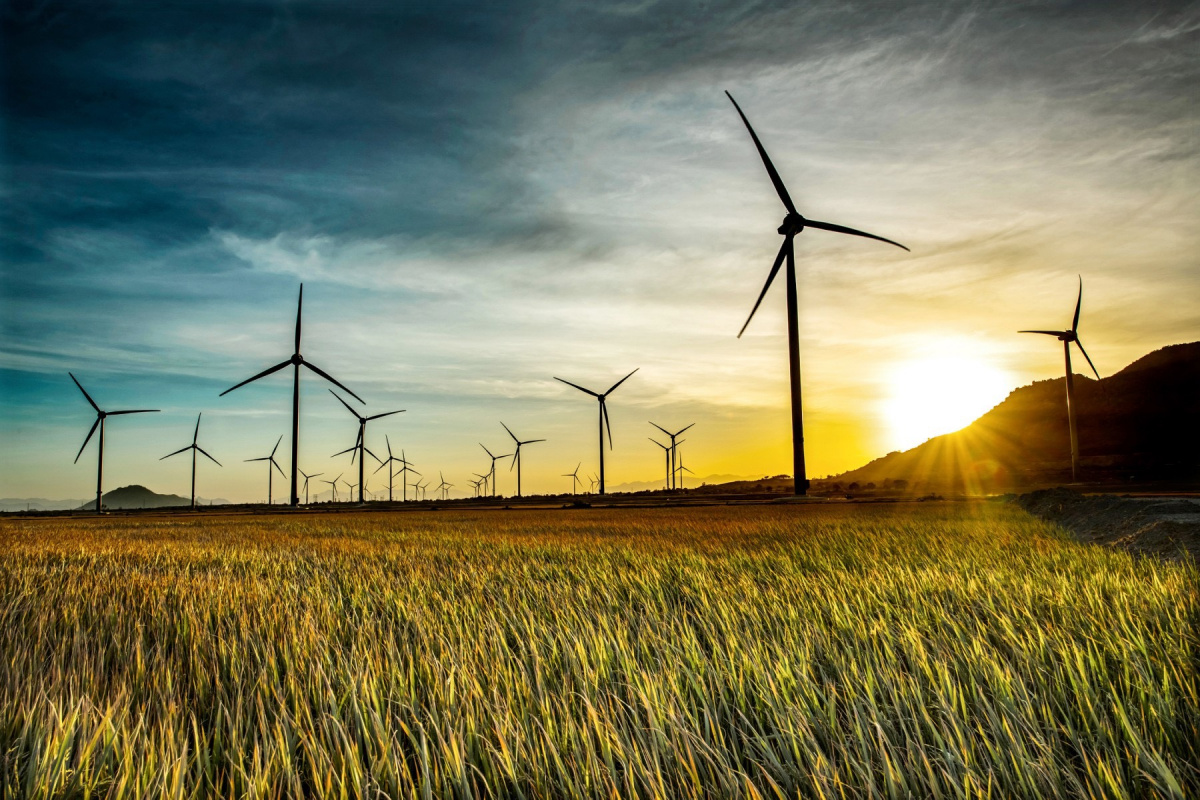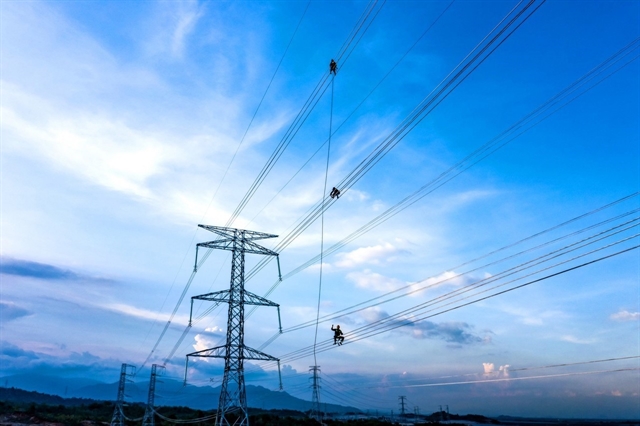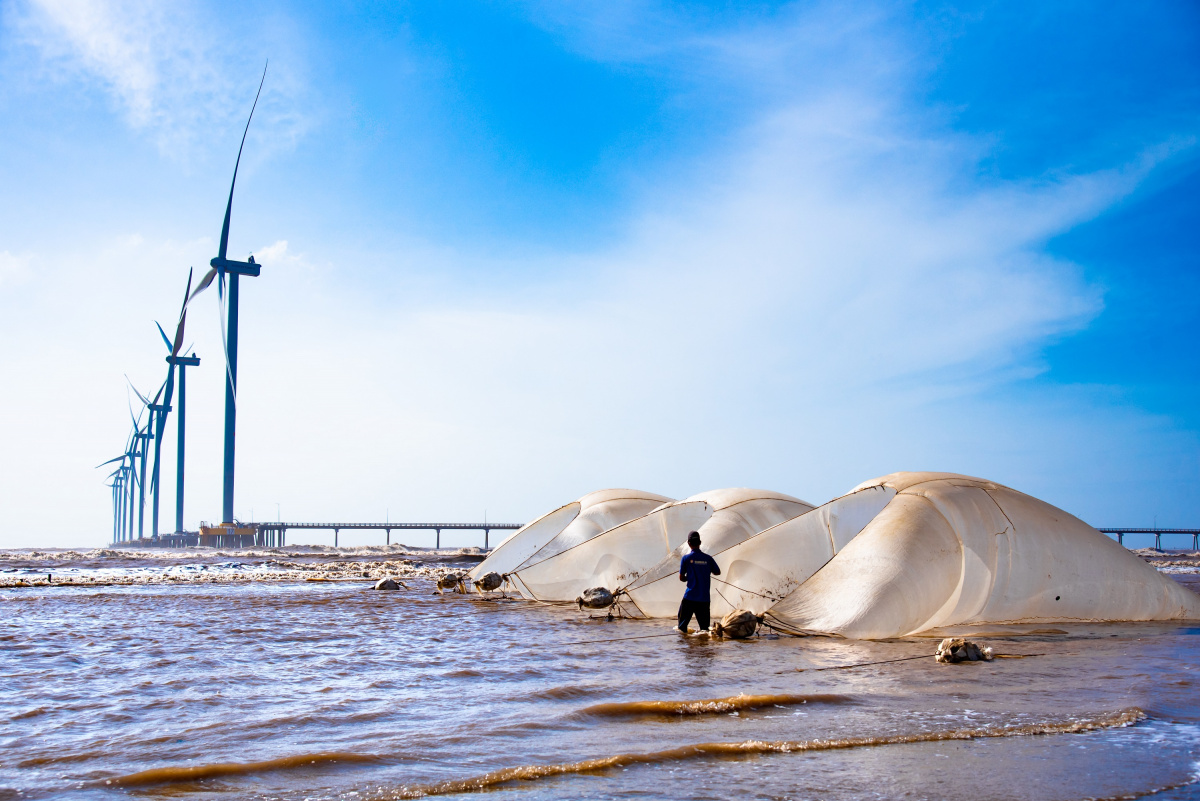Exploring national and regional opportunities to strengthen wetlands policy framework in the Lower Mekong region
From 28-30 May 2019, government officials from Cambodia, Lao PDR, Myanmar, Thailand and Viet Nam gathered in Bangkok to discuss the status and progress of wetland policies in the region. The discussion was part of a regional dialogue organised by the Indo-Burma Ramsar Regional Initiative (IBRRI), for which IUCN acts as the secretariat, and the Ramsar Regional Center East Asia (RRC-EA).
“This event provided countries in the lower Mekong Region the opportunity to share experiences on current national and regional policy frameworks, and to understand how to mainstream ecosystem services provided by wetlands, into various sectoral policies, including ones related to climate change. During the development of the IBRRI strategic plan, all five countries suggested that regional policy dialogues were key to establishing effective wetland policies, ” said Mr. Raphaël Glémet, Senior Programme Officer on Water and Wetlands at IUCN Asia.
The regional dialogue in Bangkok was organised following a series of ten climate change vulnerability assessments, implemented by IUCN and partner organisations under the Mekong WET project, to highlight climate change impacts on wetlands in the region. The assessments engaged community members, local NGOs, wetlands managers and governments to analyse species, ecosystem, and community vulnerabilities under future climate change projections. Assessment results highlighted that there are limited effective wetland policies in the region, thus threatening the long-term stability of these fragile ecosystems.
The regional policy dialogue focused on identifying opportunities to mainstream better wetlands ecosystem services and conservation practices within climate change-related policies and commitments. Particular attention was given to SDG 13 on Climate Action as well as to the National Determined Contributions (NDCs) developed as part of the Paris Agreement.
During the dialogue session, critical gaps were identified, particularly the regional underrepresentation of wetlands in climate change mitigation and adaptation policy. The region hosts globally important peatlands and mangrove forests; these habitats store more carbon than terrestrial forests, and are critical for the development of ecosystem-based adaptation approaches to climate change.
Dr. Tran Ngoc Cuong, Head of Ecology and Natural Landscape Division at Viet Nam Environment Administration said, “We learned from the experience of other countries on developing wetlands policies, this is very valuable in our national context. Through the dialogue, we also learned the importance of integrating wetlands into climate change- related policies. The next step will be to explore how we can capitalise on national processes and platforms to do so.”
Based on the results of the discussion, workshop participants concluded that IBRRI should continue to have policy dialogues on wetlands, along with capacity buildings and bilateral exchanges. A policy brief on integrating wetlands into climate change policy in the five countries will also be drafted by the IBRRI secretariat to better guide the actions of the five governments.
For more information about the outputs of the regional policy dialogue, access the full report here: Regional Dialogue on Wetlands Policies in the Lower Mekong Region.
About IBRRI
The Indo-Burma Ramsar Regional Initiative (IBRRI) was launched in June 2016, under the leadership of the governments of Cambodia, Lao PDR, Myanmar, Thailand and Viet Nam, who are contracting parties of Ramsar. IUCN Asia acts as the secretariat for the initiative. Ramsar Regional Initiatives (RRIs) under the Ramsar Convention are intended as operational means to provide effective support for an improved implementation of the objectives of the Convention and its Strategic Plan in specific geographical regions, through international cooperation on wetland-related issues of common concern. Regional Initiatives provide an enabling environment for the involvement of all stakeholders at all levels, including the ministries responsible for the environment and water issues, intergovernmental bodies, Ramsar International Organisation Partners (IOPs), other NGOs, academia, local communities, and economic actors. They provide a platform for governments, technical experts, international NGOs, local communities and private companies to collaborate on the governance and administration of the Ramsar Convention.
Funded by the International Climate Initiative (IKI) of the German Federal Ministry for the Environment, Nature Conservation, Building and Nuclear Safety (BMUB), and to be implemented until 2020, the “Mekong WET: Building Resilience of Wetlands in the Lower Mekong Region” project aims to build climate resilience by harnessing the benefits of wetlands in Cambodia, Lao PDR, Thailand, and Viet Nam. Mekong WET will help these countries to address their commitments to the Ramsar Convention, an international treaty for the conservation and sustainable use of wetlands, and to achieve the Aichi Biodiversity Targets. The project is also supporting the IBRRI and the implementation of the IBRRI strategic plan 2019-2024.
